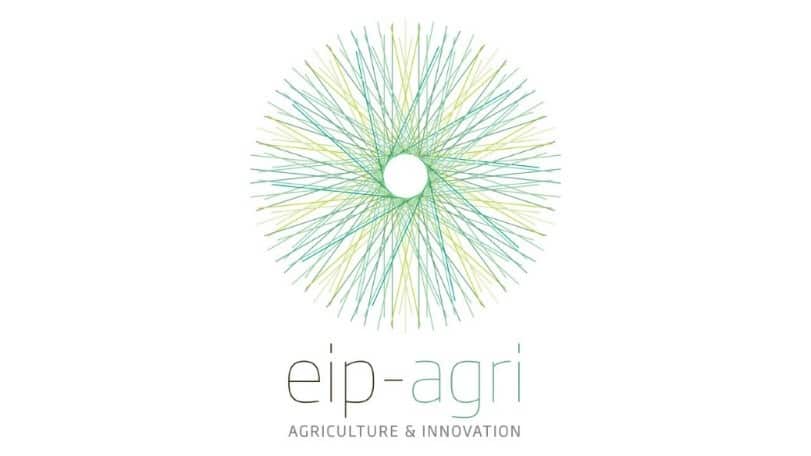In this EIP-AGRI guest blog, Dr Derek McLoughlin, Assistant Project Manager of the Pearl Mussel Project EIP-AGRI Operational Group provides us with a unique insight into the origins and ethos of this innovative pilot agri-environment programme seeking to improve the quality of watercourses to benefit the endangered freshwater pearl mussel. Derek also highlights the importance of the project’s locally adapted, results-based approach in engaging and rewarding farmers participating in the project.

The lights of our jeep briefly lit the dark silver streaked November night sky as we inched forward on the windy Ballaghbeama road between the Caragh and Blackwater catchments in south Kerry. Occasional vertical hues of grey /white mountain streams in full flow caught our eye, usually associated with a quick rise, and fall of our stomach as we crossed another bridge. The wind shook us, and the rain pelted the windscreen so hard it was difficult to know if we were even still on the road! It crossed my mind that this catchment holds the highest rainfall record in Ireland, set at 3,943mm in 1960. That is almost 4 metres in a single year!
Do we have everything we need, questionnaire sheets, projector, laptop, memory stick, pens, spare reading glasses? At this speed are we going to be late for the meeting? The contrast on our arrival at the local community centre could not have been greater. The seats quickly filled with many of the farmers of the catchment and members of the public keen to hear what the Pearl Mussel Project is all about.
Over the following two months we meet over 400 farmers across the top 8 Freshwater Pearl Mussel catchments in counties Cork, Kerry, Galway, Mayo and Donegal. These meetings were an essential part of the development of the Pearl Mussel Project (PMP) EIP-AGRI Operational Group. We were provided with clear and frank insights into the challenges and opportunities of farming these catchments.
For an agri-environment scheme to be successful it should be fair, practical, and understandable to the farmer, whilst capturing the ecological requirements of the target, in our case Freshwater Pearl Mussel. It must also consider its long-term goals in terms of changing attitudes towards valuing biodiversity and other eco-system services. The results-based approach adopted by the PMP fitted these criteria perfectly.
Farmland habitats are used as result indicators and the higher the quality of these habitats (scored out of 10), the higher the payments farmers receive. This approach has the effect of creating a market for biodiversity and provides an opportunity and incentive for farmers to manage their habitats to a higher quality. Although payments are for results achieved, supporting actions, such as the provision of drinking troughs, drain-blocking, and stock management, are financed through the programme to assist farmer achieve higher scores.
The focus of the pearl mussel project is on reward for ecosystem services, rather than restriction and penalty. One farmer at of meetings remarked ‘it’s the first time we have been told what we can do with our land rather than what we can’t do’.
The Pearl Mussel Project is lucky to have an excellent team with a strong interest in farming, people, and the environment. The team, together with its farmers and advisory groups, has created an exciting template for how future agri-environment schemes can operate to deliver a broad range of ecosystem services from biodiversity, to clean water and carbon storage. The project’s focus is on protecting the rare and endangered Freshwater Pearl Mussel that depends on the wetness and pristine water of these high-rainfall catchments. But with many other services being delivered, there’s ‘more than it says on the tin’!

A printable version of this blog can be downloaded here.
Author Biography
 Dr Derek McLoughlin is an agro-ecologist that has been working in the area of ecology from his native Westport, County Mayo since 2003. Derek has extensive experience working in broader ecological consultancy and on agri-environmental projects including the national GLAS farm agri-environment scheme. Derek has worked as Project Coordinator for the Results-based Agri-environmental Pilot Scheme (RBAPS) Project for the European Forum on Nature Conservation and Pastoralism (EFNCP). He is Assistant Project Manager on the Pearl Mussel Project European Innovation Partnership (EIP-AGRI). He has extensive experience on the development of results-based agri-environment schemes in Ireland and in other EU member states.
Dr Derek McLoughlin is an agro-ecologist that has been working in the area of ecology from his native Westport, County Mayo since 2003. Derek has extensive experience working in broader ecological consultancy and on agri-environmental projects including the national GLAS farm agri-environment scheme. Derek has worked as Project Coordinator for the Results-based Agri-environmental Pilot Scheme (RBAPS) Project for the European Forum on Nature Conservation and Pastoralism (EFNCP). He is Assistant Project Manager on the Pearl Mussel Project European Innovation Partnership (EIP-AGRI). He has extensive experience on the development of results-based agri-environment schemes in Ireland and in other EU member states.
Pearl Mussel Project Website: https://www.pearlmusselproject.ie/
Pearl Mussel Project Twitter: https://twitter.com/pearl_mussel
Pearl Mussel Project Facebook: https://www.facebook.com/pearlmusselproject/
Pearl Mussel Project YouTube: https://www.youtube.com/channel/UCnLENePtB1JcjRM1vxIQiTw/featured


If you are interested in writing a guest blog post on the topic of EIP-AGRI, Farm Viability or LEADER to be featured on the National Rural Network (NRN) website and various social media pages, please email Dr Shane Conway, Researcher at NUI Galway and with the NRN for more details: shane.conway@nuigalway.ie.
The NRN are always looking to highlight and promote innovative initiatives that will help inspire people in the farming community and in rural areas to maximize the success of the objectives set out in the Rural Development Programme 2014-2020.

